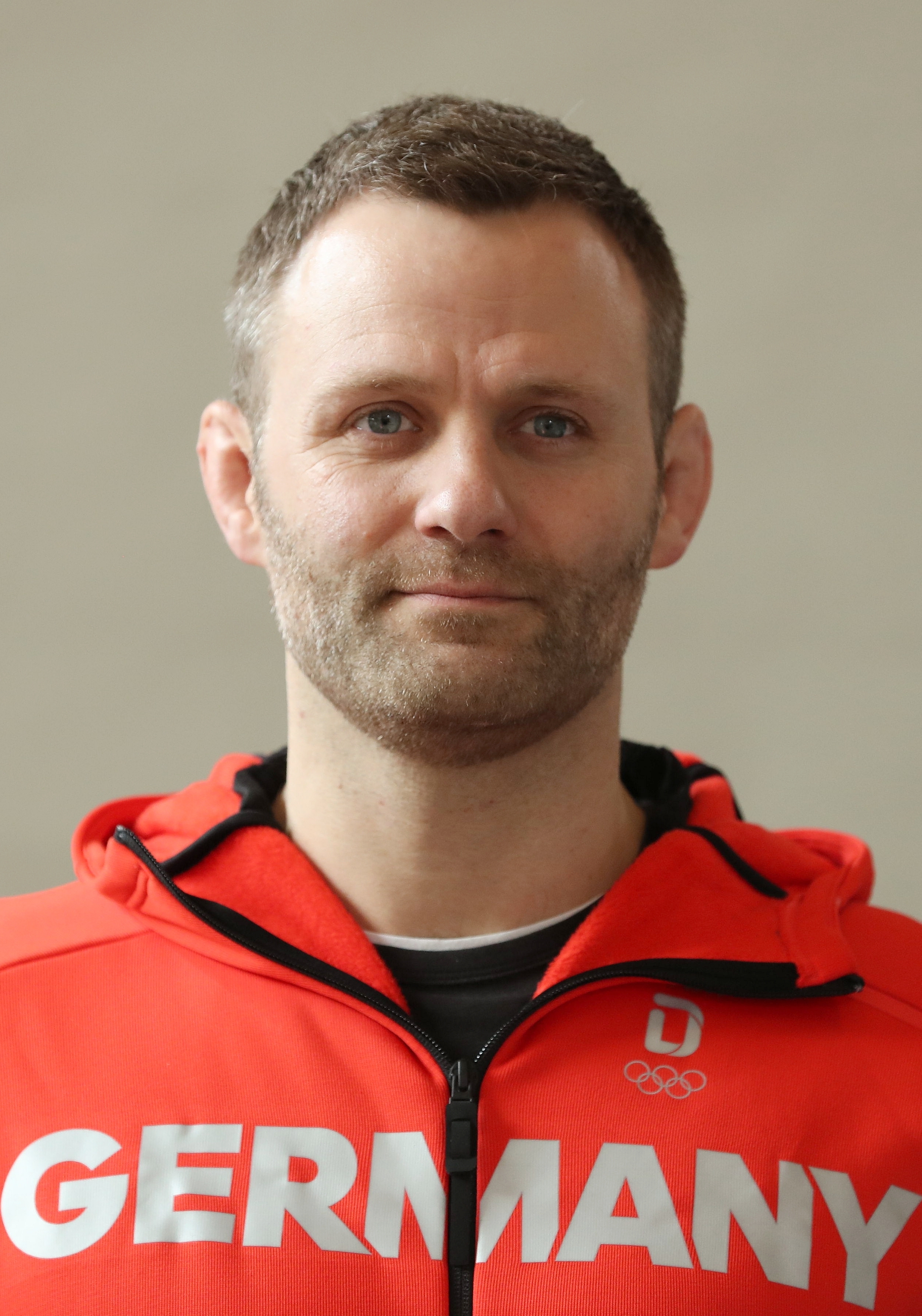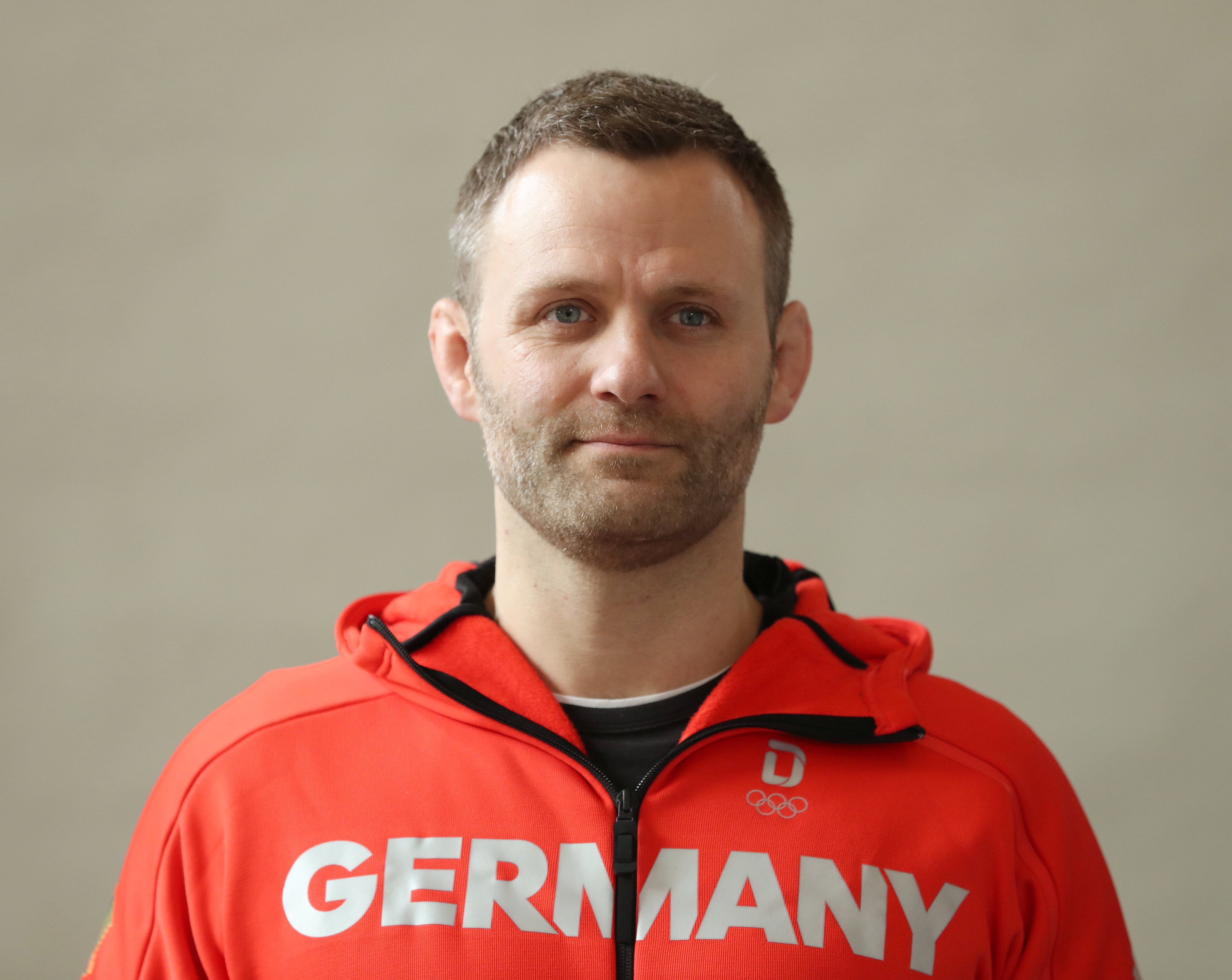1. Overview

Ole Bischof (Ole BischofGerman, born August 27, 1979) is a former German judoka. Standing 71 in (180 cm) and competing at 179 lb (81 kg) in his weight class, he is a highly decorated athlete, having won a gold medal at the 2008 Beijing Olympics and a silver medal at the 2012 London Olympics, both in the -81 kg category. Bischof is particularly recognized for his exemplary sportsmanship, especially towards his rival, Kim Jae-Bum, whom he faced in both Olympic finals. Trained by the 1984 Olympic gold medalist Frank Wieneke, he also achieved success at the German, European, and World Championships. After his retirement from competitive judo in September 2012, Bischof transitioned into a professional career, leveraging his background in economics, and took on roles in sports administration.
2. Early Life and Judo Beginnings
Ole Bischof's early life laid the foundation for his successful judo career, beginning with his introduction to the sport and his rapid ascent through the national ranks.
2.1. Birth and Childhood
Ole Bischof was born on August 27, 1979, in Reutlingen, then part of West Germany.
2.2. Judo Training and Early Success
Bischof began his judo training at the age of 13, joining the TSG Reutlingen club. He was notably coached by Frank Wieneke, who had won a gold medal in judo at the 1984 Summer Olympics. Under Wieneke's guidance, Bischof quickly demonstrated his potential, winning the German U-21 championship in 1997 at the age of 18. Four years later, in 2001, he further solidified his standing by claiming the title of German champion in the men's senior category.
3. International Competitive Career
Ole Bischof's international competitive career was marked by a steady rise through the ranks, culminating in significant achievements at the Olympic Games and other major tournaments.
3.1. Rise to Prominence
Following his 2001 German championship, Ole Bischof began to earn medals in various international competitions, establishing himself as a formidable presence on the global judo stage. He achieved particular success at the European Judo Championships, winning a silver medal in 2004 in Bucharest and securing the European champion title in 2005. He also earned a bronze medal at the 2011 European Championships in Istanbul. Since 2001, Bischof also competed in team competitions for TSV Abensberg. With TSV Abensberg, he helped the team secure the German championship and the European Cup title consistently from 2002 to 2008. The team also won the European Club Championships between 2002 and 2006. Despite being the highest-ranked German in the world rankings for his weight class, Bischof was replaced by Florian Wanner, the reigning 2003 World Champion, for the 2004 Athens Olympics.
3.2. Olympic Achievements
Bischof's career is most prominently defined by his two Olympic appearances, where he achieved both gold and silver medals, notably competing against his rival Kim Jae-Bum in both finals.
3.2.1. 2008 Beijing Olympics
At the 2008 Beijing Olympics, Ole Bischof competed in the -81 kg category. His path to the final included victories over highly respected opponents such as Tiago Camilo of Brazil, who was a silver medalist at the 2000 Sydney Olympics, and Roman Gontyuk of Ukraine, a silver medalist from the 2004 Athens Olympics. In the decisive final match, Bischof faced Kim Jae-Bum of South Korea, whom he successfully defeated to secure his first Olympic gold medal.
3.2.2. 2012 London Olympics
Four years later, at the 2012 London Olympics, Bischof once again advanced to the final of the -81 kg category. In a highly anticipated rematch, he faced his rival Kim Jae-Bum again. Although Bischof was defeated in this encounter, earning a silver medal, his conduct after the match drew significant praise. He notably lifted Kim Jae-Bum's hand in a gesture of acknowledgment for his victory and offered sincere congratulations, showcasing remarkable sportsmanship that garnered widespread admiration from spectators and fellow athletes alike.
3.3. Other Major International Results
Ole Bischof accumulated a comprehensive list of medals and top-five finishes at various other significant international tournaments throughout his career.
| Year | Tournament | Place | Weight class |
|---|---|---|---|
| 2012 | Summer Olympics | Silver | -81 kg |
| 2012 | Grand Slam Paris | Gold | -81 kg |
| 2012 | Grand Prix Düsseldorf | Gold | -81 kg |
| 2011 | European Judo Championships | Bronze | -81 kg |
| 2011 | Grand Slam Moscow | Bronze | -81 kg |
| 2011 | Grand Prix Baku | Gold | -81 kg |
| 2010 | Grand Slam Moscow | Bronze | -81 kg |
| 2010 | Grand Prix Tunis | Gold | -81 kg |
| 2009 | World Judo Championships | Bronze | -81 kg |
| 2009 | European Judo Championships | 5th | -81 kg |
| 2009 | Grand Slam Moscow | Bronze | -81 kg |
| 2009 | Grand Prix Tunis | Gold | -81 kg |
| 2008 | Summer Olympics | Gold | -81 kg |
| 2008 | World Cup Tbilisi | Bronze | -81 kg |
| 2007 | European Judo Championships | 5th | -81 kg |
| 2007 | Grand Slam Paris | Bronze | -81 kg |
| 2007 | Grand Prix Rotterdam | Gold | -81 kg |
| 2007 | German International | Bronze | -81 kg |
| 2007 | Russian International | Silver | -81 kg |
| 2006 | European Judo Championships | 5th | -81 kg |
| 2006 | World Student Championships | Gold | -81 kg |
| 2006 | Russian International | Silver | -81 kg |
| 2005 | European Judo Championships | Gold | -81 kg |
| 2004 | European Judo Championships | Silver | -81 kg |
| 2004 | World Student Championships | Silver | -81 kg |
| 2004 | Hungarian International | Bronze | -81 kg |
| 2003 | Summer Universiade | Bronze | -81 kg |
| 2003 | German International | Bronze | -81 kg |
4. Retirement and Post-Career Activities

Following his distinguished career in competitive judo, Ole Bischof transitioned into various professional and public roles, utilizing his academic qualifications and maintaining his involvement in the world of sports.
4.1. Retirement
Ole Bischof officially announced his retirement from professional judo in September 2012, shortly after his silver medal performance at the London Olympics. This marked the end of a competitive career that spanned over a decade at the international level.
4.2. Academic and Professional Career
While pursuing his elite athletic career, Bischof concurrently dedicated himself to his education. He studied economics at the University of Cologne and successfully graduated with a Diplom degree, specifically as a Diplom VolkswirtGerman. After his retirement from judo, he leveraged his academic background, beginning a career as a consultant at PricewaterhouseCoopers (PwC) in December 2012. His commitment to sports administration continued, as evidenced by his appointment as Vice President of the German Olympic Sports Confederation in 2014.
4.3. Public Appearances
Beyond his judo career, Ole Bischof also made appearances in popular media. In 2008, he participated in the well-known German game show Schlag den Raab, where he competed against the show's host and lost with a score of 3-63.
5. Assessment and Legacy
Ole Bischof's career is widely assessed as highly successful, marked not only by his significant athletic achievements but also by his contributions to the spirit of the sport.
5.1. Positive Assessment
Ole Bischof is highly regarded for his dedication, consistent performance, and exceptional sportsmanship throughout his judo career. His respectful gesture towards his rival Kim Jae-Bum after their final match at the 2012 London Olympics, where he publicly lifted Kim's hand in victory, became a memorable moment that showcased his integrity and earned him widespread admiration as a role model. His achievements, including his Olympic gold and silver medals, European Championship titles, and numerous other international podium finishes, solidify his place as one of Germany's most successful judoka. His pursuit of an academic degree in economics while competing at an elite level further highlights his discipline and well-rounded character.
5.2. Criticism and Controversy
There are no widely reported criticisms or notable controversies associated with Ole Bischof's competitive career or post-retirement activities. He is generally remembered for his athletic prowess and exemplary conduct both on and off the mat.